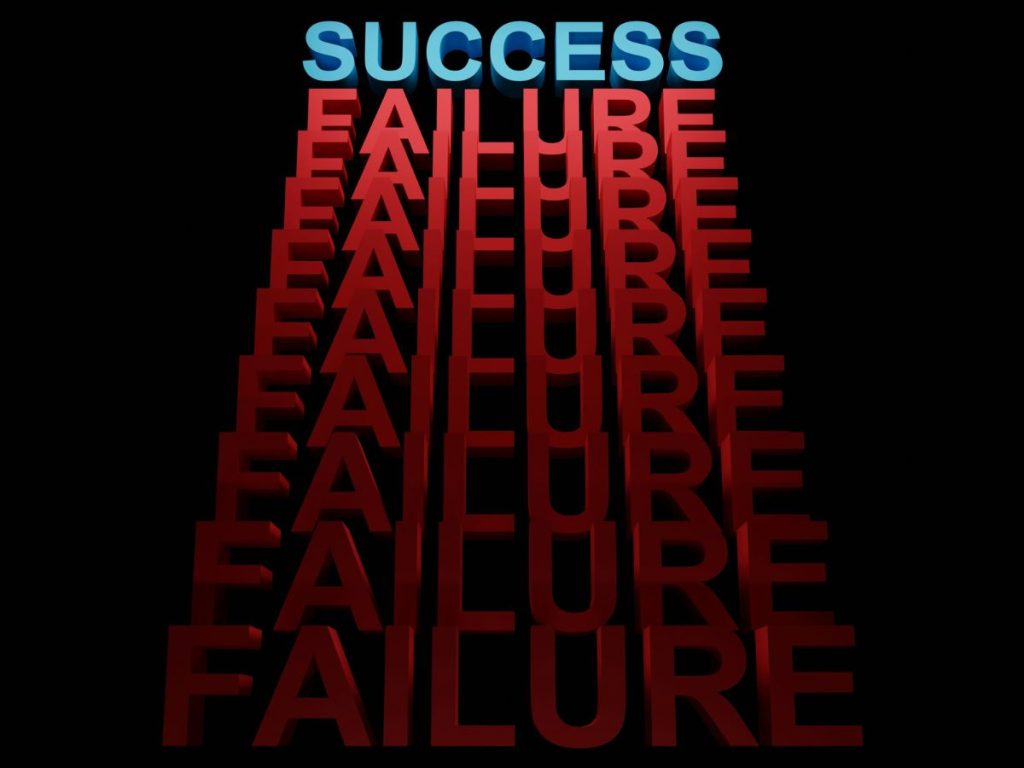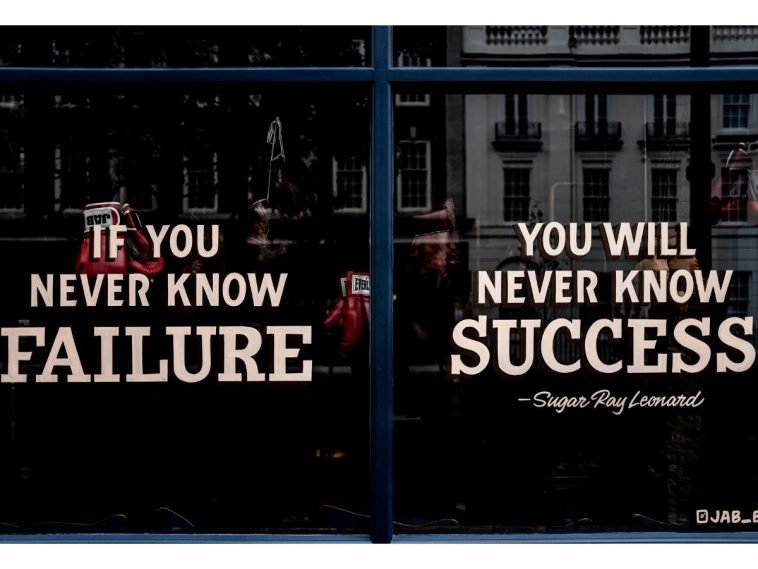In the pursuit of success, failure often gets a bad reputation. Many view failure as something to avoid, something that hinders progress or undermines goals. But what if failure is actually a critical component of success? What if the setbacks, mistakes, and challenges we face on our journey are not barriers, but stepping stones to a greater future? This blog explores why failure, in fact, is good for success, and how embracing failure can lead to growth, learning, and ultimate achievement.
Understanding Failure
Before we can explore why failure is essential for success, it’s important to understand what failure truly is. Failure is not the end; it’s a temporary state in a process of continuous growth. It’s a feedback mechanism that shows us where we can improve, what isn’t working, and what needs to be adjusted in our strategies or mindset.
Failure can take many forms—rejection, mistakes, missed opportunities, or even moments of deep personal doubt. The key, however, is not to see these experiences as defeats, but as part of the process of growth. Just as we learn to walk by stumbling and falling, we learn the most valuable lessons in life from our failures.
1. Failure Encourages a Growth Mindset
One of the most significant benefits of failure is its ability to cultivate a growth mindset. A growth mindset, as defined by psychologist Carol Dweck, is the belief that abilities and intelligence can be developed with effort, learning, and perseverance.
When we fail, we have a choice: we can view it as a personal flaw or a roadblock, or we can see it as an opportunity for growth. The key to success is not avoiding failure but learning from it. Every time we fail, we gain valuable information about our strengths, weaknesses, and areas for improvement. Instead of getting discouraged, we adjust our approach and keep moving forward.
Successful people often exhibit a growth mindset. They see failure not as a reason to quit but as a reason to try again—this time, with more knowledge and experience. Thomas Edison, for example, failed thousands of times before inventing the lightbulb, yet he never considered those failures as signs of defeat. Instead, he viewed each failure as a learning experience that brought him closer to success.

2. Failure Builds Resilience and Perseverance
Failure is not easy. It’s emotional, often uncomfortable, and sometimes disheartening. However, it’s this very discomfort that builds resilience and perseverance. Resilience is the ability to bounce back from adversity, and it is an essential trait for achieving long-term success.
When you experience failure, you learn how to handle disappointment and frustration. You become better equipped to deal with challenges in the future, knowing that you have the ability to recover and keep moving forward. Every setback you encounter strengthens your resolve to push through difficulties and achieve your goals.
Consider athletes, for instance. Many famous athletes faced multiple failures throughout their careers. Michael Jordan was cut from his high school basketball team, and Serena Williams faced countless defeats before becoming one of the greatest tennis players in history. Their resilience in the face of failure is what ultimately led them to success. Failure is not something they feared—it was something they learned from, grew stronger through, and used to fuel their determination.
3. Failure Leads to Innovation and Creativity
Failure fosters creativity because it forces us to think outside the box and find new ways of solving problems. When an approach doesn’t work, it forces us to re-evaluate, reconsider, and develop new strategies. This process of trial and error is a fundamental driver of innovation.
In business, for example, many of the most successful entrepreneurs faced multiple failures before finding the right path. Steve Jobs was fired from the company he co-founded, yet his failure led to his most significant accomplishments. When he returned to Apple, he brought with him a new perspective and a willingness to challenge the status quo, ultimately transforming Apple into the tech giant it is today.
Failure challenges conventional thinking and encourages people to take risks and experiment. Without failure, many of the world’s greatest inventions and breakthroughs would not have happened. It’s the failures that push us to innovate, to find better solutions, and to reimagine what’s possible.
4. Failure Provides Clarity and Refines Goals
Sometimes, failure serves as a wake-up call. It forces us to reassess our goals and clarify our true intentions. Are we pursuing something because it’s what we truly want, or are we chasing an idealized version of success that doesn’t align with our values?
Failure helps refine our vision by helping us understand what we want and don’t want. For example, when we fail at something, we often gain clarity about our passions, desires, and purpose. It’s like a filter that helps separate what truly matters from what’s insignificant. As a result, failure provides an opportunity to adjust our course and pursue goals that are more aligned with our true aspirations.
Moreover, failure often highlights areas where we need to improve. It gives us a clear idea of the specific skills, knowledge, or strategies we may be lacking. Once we identify these gaps, we can focus our energy on improving in those areas, leading to more targeted and effective efforts toward achieving our goals.

5. Failure Teaches Valuable Life Skills
In addition to the lessons failure offers about perseverance and resilience, it teaches other valuable life skills that are essential for success. Among these skills are:
- Emotional regulation: Failure helps us practice emotional control and self-compassion. We learn to deal with feelings of disappointment, frustration, and sadness without letting them derail our progress.
- Decision-making: Failure forces us to make tough decisions, learn from our mistakes, and make more informed choices in the future.
- Problem-solving: Every failure presents a challenge that requires problem-solving. We learn how to approach problems creatively and effectively to find solutions.
- Risk-taking: Failure encourages us to take calculated risks. By understanding that failure is a part of the process, we become more comfortable stepping outside our comfort zones.
These life skills are not only valuable in professional settings but are also crucial for personal growth and happiness. Success without these skills can be shallow and short-lived, but with them, we can achieve lasting fulfillment and long-term achievement.
6. Failure is a Universal Experience
One of the most important things to remember about failure is that it’s universal. Everyone, from the richest CEOs to the most successful athletes, has faced failure at some point in their lives. It is not a sign of weakness or incompetence—it’s simply part of the human experience.
When we embrace failure as a normal and inevitable part of life, we free ourselves from the fear of it. We stop seeing it as something to be avoided at all costs and start seeing it as a stepping stone toward something greater.
By sharing our experiences of failure with others, we also create a culture of support and understanding. This helps reduce the stigma surrounding failure and encourages people to take risks, try new things, and be bold in their pursuits.
Conclusion: The Path to Success Is Paved with Failure
Failure is not a sign that success is out of reach. On the contrary, failure is an essential part of the process of achieving success. It teaches us resilience, encourages innovation, provides clarity, and builds the skills needed to thrive in life and work. Rather than fearing failure, we should embrace it, learn from it, and use it as a tool for growth.
The most successful people in history didn’t reach their goals because they avoided failure. They succeeded because they faced failure head-on, learned from their mistakes, and persisted in their journey toward success.
So, the next time you encounter failure, remember that it’s not the end of the road—it’s simply a pit stop on the way to something greater. Embrace it, learn from it, and keep moving forward. Success is often just one more failure away from being achieved.



One Ping
Pingback:25 Quotes to Be Successful: Motivation to Achieve Your Dreams - Success India Magazine